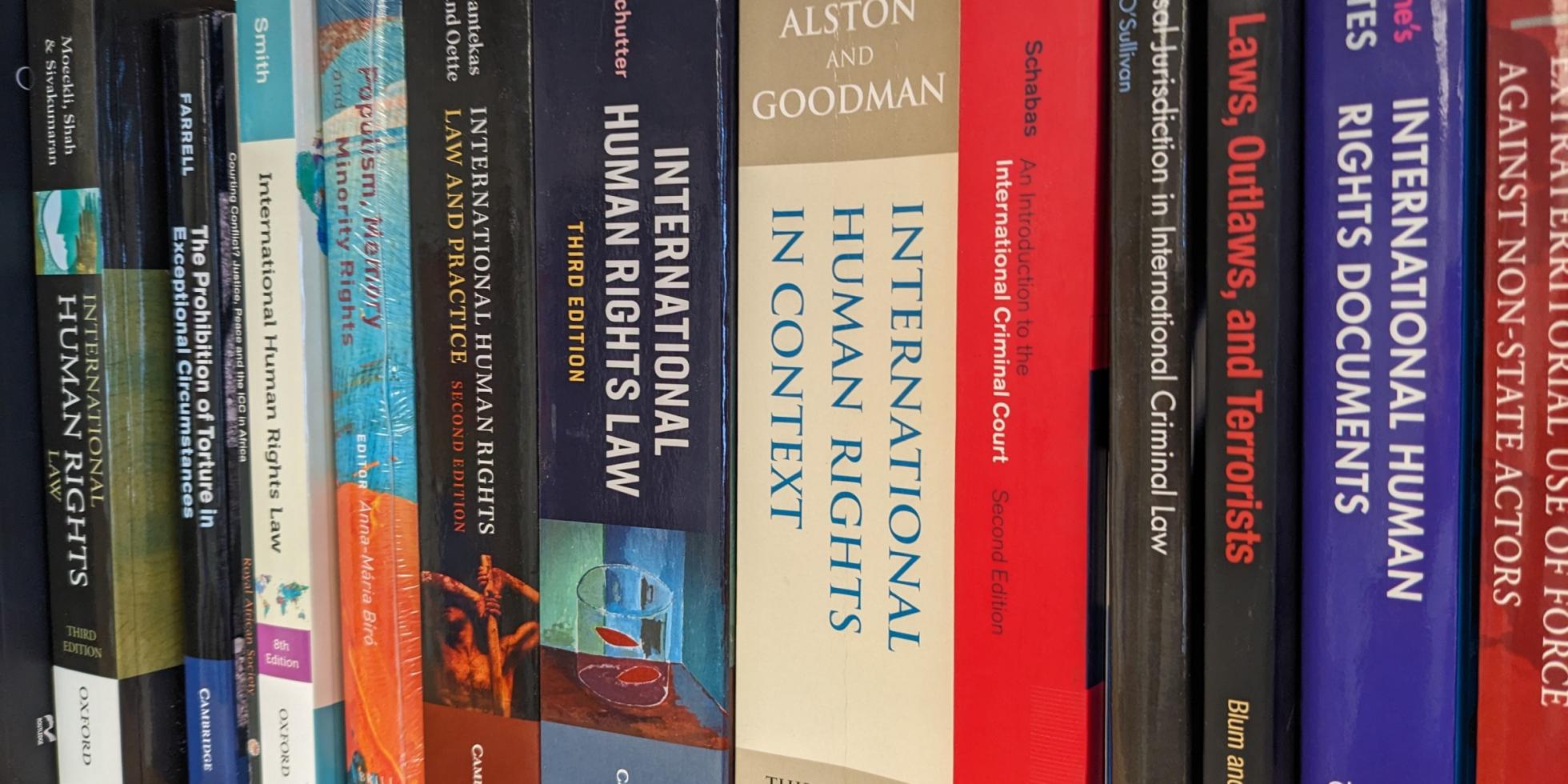The virtual human rights library brings together resources from multiple libraries and information services, both internal and external, to create an online hub dedicated to the study of human rights. This curation is unique in its interdisciplinary concerns and focuses on writings and research from social sciences, humanities, and law.
The virtual library is continually updated with the latest academic research in issue areas, as well as with relevant films, recorded conversations, and other forms of media.
Please Note:
The Virtual Library is usable by all visitors, but the hyperlinks to materials listed are for UChicago community members with a CNet ID and password.
Please direct feedback and suggestions to Kathleen Cavanaugh.
For technical assistance, email pozenhumanrights @ uchicago.edu.
Searchable Database
Click into the dropdowns to select the disciplines, keywords, and media type for your search, and then hit "Apply."
"The Global Constitutionalization of Human Rights: Overcoming Contemporary Injustices or Juridifying Old Asymmetries?."
Recent decades are marked by an impressive expansion of actors and legal structures intended to globally extend a certain ‘Western’ catalog of human rights. Recently, too, legal scholars have developed concepts to justify normatively the expansion of human rights (e.g...
"The global dimensions of rape-law reform: A cross-national study of policy outcomes."
Most studies of rape-law reform outcomes focus on single cases. We advance this literature by studying outcomes more systematically—leveraging new cross-national and longitudinal reform data—and showing that reform outcomes have both global and national determinants. Our exploratory analyses show three...
"The Great Refusal: The West, the Rest, and the New Regulations on Homosexuality, 1970–2015."
World polity theorists suggest that, over the last half century, policies on homosexuality have been liberalized throughout the world; other scholars argue that gay rights continue to face strong, possibly growing opposition. This article takes a different perspective. I argue...
"The Holocaust, the Legacy of 1789 and the Birth of International Human Rights Law: Revisiting the Foundation Myth"
This study revisits the place of the Holocaust and the French revolutionary tradition in the birth of international human rights law, with particular reference to the genesis of the Universal Declaration and European Convention. It argues against conceptualizing the drafting...
"The Institutionalization of Human Rights and its Discontents: A World Cultural Perspective."
A recurring theme in the sociology of human rights is the vast decoupling that exists between the formal codification of these rights in principle and their implementation in practice, fueling much debate about the effectiveness of international law. Yet, despite...
"The international women's movement and women's political representation, 1893–2003."
Women's political representation, once considered unacceptable by politicians and their publics, is now actively encouraged by powerful international actors. In this article, the authors ask how the growth and discourse of the international women's movement affected women's acquisition of political...
"The limits of gaining rights while remaining marginalized: The deferred action for childhood arrivals (DACA) program and the psychological wellbeing of Latina/o undocumented youth."
Policies that expand the rights of marginalized groups provide an additional level of structural integration, but these changes do not always come with broad social acceptance or recognition. What happens when a legally marginalized group attains increased rights but not...
"The Minority Problem: National Classification in the French and Czechoslovak Borderlands"
In the aftermath of the First World War, a so-called 'minority problem' loomed large in European politics. This problem was understood, moreover, to be peculiar to central and eastern Europe. In fact, however, linguistic diversity was not a unique feature...
"The Moral Career of the Genocide Perpetrator: Cognition, Emotions, and Dehumanization as a Consequence, Not a Cause, of Violence."
Scholars have long argued that dehumanization causes violence. However, others have recently argued that those who harm do so because they feel pressured or view violence as justified. Examining the Rwandan genocide, this article contends that contradictory theories of dehumanization...
"The moral economy of land: from land reform to ownership society, 1880–2018."
This article offers a comparative-historical perspective on the moral economy of land. We reconstruct the moral economy of the popular land reform movement that opposed the illegitimate income streams of rentiers and speculators in the early 20th century, tracing the...

